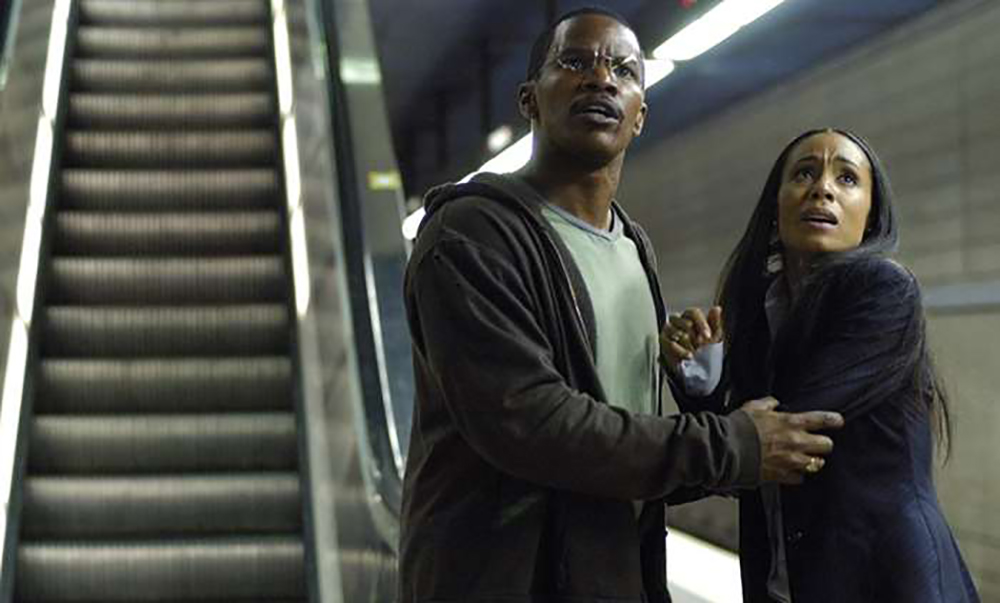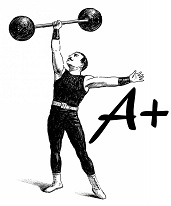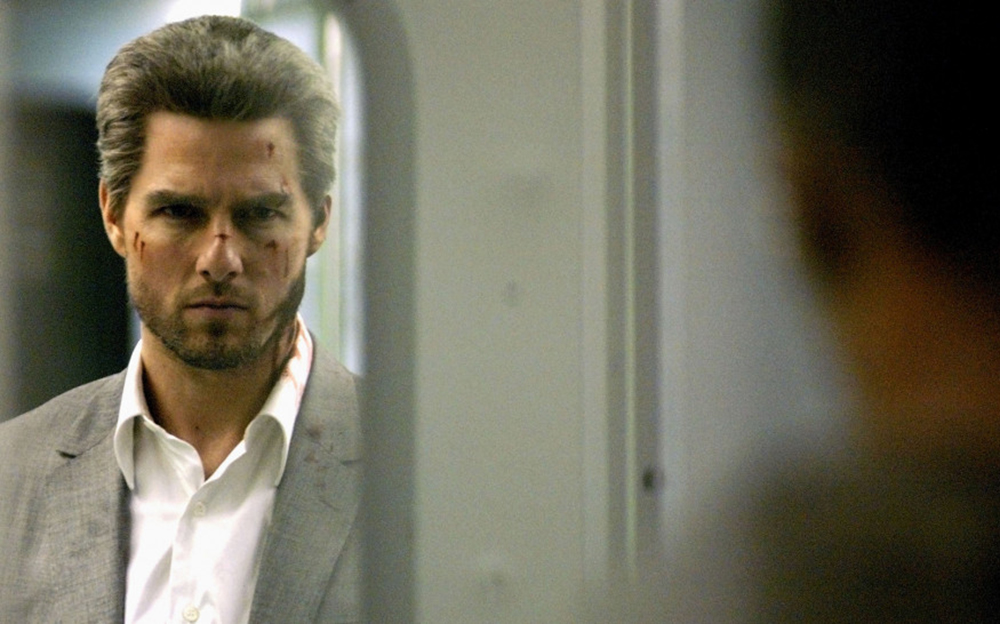In 2004, director Michael Mann made a film that flew under the radar for mainstream audiences, but has stood the test of time as a powerful film that rises above your run-of-the-mill action thriller.
“Collateral” stars Jamie Foxx stars as Max, a taxi driver working the night shift in L.A. He’s a smooth, charming guy with ambitions to start a cool-groove limousine company named Island Limos. His job as a cabbie pays the bills, but as he boasts to his attractive fare, Annie (Jada Pinkett Smith), he plans to do more extraordinary things with his life. After he gets Annie’s number, Max’s night begins to look up.
Just then, a man with a suit and a newly acquired briefcase named Vincent (Tom Cruise) enters his cab. As Max drives Vincent to his destination, the two men exchange small talk before Vincent makes Max an offer: he will pay Max $600 to drive him around the streets to places all night before he catches a plane in the morning. Max reluctantly accepts the deal, shortly before a corpse drops on his car. Vincent is a hitman, and Max finds himself forced to drive Vincent to each place on the hit-list in one thrilling night.
With contained thrillers such as this, screenwriters face challenges, as they must keep the story going without straining credibility. “Collateral” does this and more, with a believable series of events that keeps the audience on edge through its runtime. This can be attributed in part to the performances, with Cruise playing against type in a rare villainous role. The character of Vincent allows Cruise to demonstrate his action abilities with his skill for dramatic scenes. Cruise portrays Vincent as a lone wolf, a man so removed from reality that he does not see the horror in his actions, rationalizing them with a presence that manages to be likable and frightening.

Foxx appeared in this film the same year he portrayed Ray Charles in “Ray,” which overshadowed his excellent work in this film as an innocent cabbie caught in a life-or-death situation out of his control. The film also sees Mark Ruffalo in an early role as Detective Ray Fanning, and his demeanor feels so natural that it’s easy to end up imagining what this character is like outside of the film.
What makes “Collateral” stand out over an average action movie is its lack of concern with explosions and large-spectacle stunts; it feels like an independent film at times, focusing on characters more than anything. Max is a cab driver with aspirations, but over the film, we discover that he has been driving a cab for twelve years in a job that he claims to be temporary. As we learn about Max’s insecurities, fears, and lies, it becomes clear he is a broken man, and this fateful night gives Max what he needs to change.
The movie switches between two types of films: one is a broad action film in the stunning, neo-noir streets of Los Angeles at night with Vincent executing the names on his list; the other type is a contained character-drama inside the cab. Max and Vincent’s relationship blossoms over the film, as two men who should be enemies find common ground, chipping away at each other’s beliefs and learn about themselves. “Collateral” understands that giant car chases and violence are not what makes an action film good; if the characters are fascinating enough, a shootout and a foot chase here and there will suffice.
Superhero films and bombastic popcorn entertainment have dominated our current cinema age. One can long for the days when we could have a summer action film that manages to be thrilling, while deep and philosophical at the same time. With Foxx and Cruise giving career-high performances, a slow-paced thriller like this should never be collateral.


